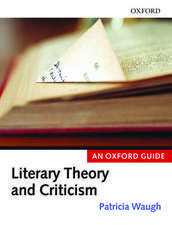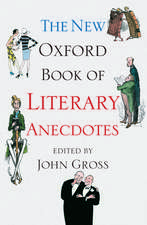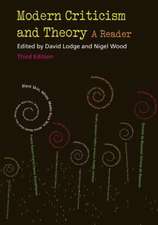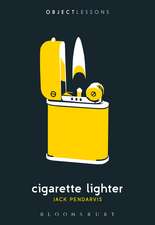Earth: Object Lessons
Autor Professor Jeffrey Jerome Cohen, Profsesor Linda T. Elkins-Tantonen Limba Engleză Paperback – 8 mar 2017
Din seria Object Lessons
- 39%
 Preț: 47.19 lei
Preț: 47.19 lei - 40%
 Preț: 46.62 lei
Preț: 46.62 lei - 39%
 Preț: 46.74 lei
Preț: 46.74 lei - 39%
 Preț: 47.62 lei
Preț: 47.62 lei - 40%
 Preț: 45.85 lei
Preț: 45.85 lei - 39%
 Preț: 47.19 lei
Preț: 47.19 lei - 39%
 Preț: 47.62 lei
Preț: 47.62 lei - 39%
 Preț: 47.62 lei
Preț: 47.62 lei - 39%
 Preț: 47.19 lei
Preț: 47.19 lei - 39%
 Preț: 47.62 lei
Preț: 47.62 lei - 39%
 Preț: 46.74 lei
Preț: 46.74 lei - 39%
 Preț: 47.19 lei
Preț: 47.19 lei - 39%
 Preț: 47.19 lei
Preț: 47.19 lei - 42%
 Preț: 47.19 lei
Preț: 47.19 lei - 39%
 Preț: 46.74 lei
Preț: 46.74 lei - 39%
 Preț: 46.74 lei
Preț: 46.74 lei - 39%
 Preț: 47.62 lei
Preț: 47.62 lei - 39%
 Preț: 47.62 lei
Preț: 47.62 lei - 39%
 Preț: 47.62 lei
Preț: 47.62 lei - 39%
 Preț: 46.74 lei
Preț: 46.74 lei - 39%
 Preț: 46.74 lei
Preț: 46.74 lei - 39%
 Preț: 46.74 lei
Preț: 46.74 lei - 39%
 Preț: 47.62 lei
Preț: 47.62 lei - 39%
 Preț: 47.19 lei
Preț: 47.19 lei - 39%
 Preț: 47.19 lei
Preț: 47.19 lei - 39%
 Preț: 46.74 lei
Preț: 46.74 lei - 39%
 Preț: 47.62 lei
Preț: 47.62 lei - 39%
 Preț: 46.74 lei
Preț: 46.74 lei - 39%
 Preț: 46.74 lei
Preț: 46.74 lei - 40%
 Preț: 46.29 lei
Preț: 46.29 lei - 39%
 Preț: 46.74 lei
Preț: 46.74 lei - 39%
 Preț: 47.19 lei
Preț: 47.19 lei - 39%
 Preț: 47.62 lei
Preț: 47.62 lei - 39%
 Preț: 47.19 lei
Preț: 47.19 lei - 40%
 Preț: 45.85 lei
Preț: 45.85 lei - 39%
 Preț: 47.62 lei
Preț: 47.62 lei - 39%
 Preț: 46.74 lei
Preț: 46.74 lei - 39%
 Preț: 47.37 lei
Preț: 47.37 lei - 39%
 Preț: 47.19 lei
Preț: 47.19 lei - 43%
 Preț: 46.74 lei
Preț: 46.74 lei - 39%
 Preț: 47.62 lei
Preț: 47.62 lei - 39%
 Preț: 46.74 lei
Preț: 46.74 lei - 39%
 Preț: 47.62 lei
Preț: 47.62 lei - 39%
 Preț: 47.25 lei
Preț: 47.25 lei - 39%
 Preț: 46.74 lei
Preț: 46.74 lei - 39%
 Preț: 47.53 lei
Preț: 47.53 lei - 39%
 Preț: 46.74 lei
Preț: 46.74 lei - 39%
 Preț: 47.62 lei
Preț: 47.62 lei - 39%
 Preț: 47.19 lei
Preț: 47.19 lei
Preț: 47.19 lei
Preț vechi: 77.43 lei
-39% Nou
9.03€ • 9.31$ • 7.63£
Carte disponibilă
Livrare economică 11-25 februarie
Livrare express 25-31 ianuarie pentru 46.78 lei
Specificații
ISBN-10: 1501317911
Pagini: 144
Ilustrații: 12 b/w illustrations
Dimensiuni: 121 x 165 x 19 mm
Greutate: 0.16 kg
Editura: Bloomsbury Publishing
Colecția Bloomsbury Academic
Seria Object Lessons
Locul publicării:New York, United States
Caracteristici
Notă biografică
Cuprins
Recenzii
Earth is a magical, unusual, curious book . Cohen and Elkins-Tanton describe it as a "little book about an impossibly large subject." This subject is made even larger by Cohen and Elkins-Tanton's forays into discussions of beauty, creativity, and imagination (including my favorite question in the book: "Can you die from an overactive imagination?") and how they connect to science and ultimately this planet. This makes Earth a book that is, ultimately, a testament to what can be discovered if we are brave enough to combine the unexpected.
Learning from this volume as a reader means . not only to participate in a conversation between specialists from two disciplines, but also to do so across different modes of expression, and experimenting together with the two authors in an innovative and completely unique creative space. Different readers (and reviewers) will learn different things from this handsome (it just about fits in an adult's hand) and beautifully designed volume . What surprised me was how 'realistic' the object lesson became for me as a scholar because of the multiple narrative modes and tones in which it is written. The fragmentary mix of subjective impressions and scientific factoids all of us sedulously collect before we force them into linear narratives are all discernible as patterns in a rich and open ended fabric.
Earth is ambitious, thought-provoking and inspirational, conversationally written between two dissimilar but very complementary viewpoints. In this great age of exoplanetary discovery, it makes me wonder how unique our wonderful home planet really is.
As much as the mindsets of a distinguished planetary scientist and a medieval studies professor differ, it is what they share in common when thinking about that object so dear to all of us, the Earth, that is so fascinating. What this delightful and informative book ultimately demonstrates is that the humanity of science itself offers untold fuel for the humanities to ponder our existence. The Object of this book, the Earth, is at once more interesting and better off because both of these scholars chose to write about it.
Gorgeous . The book's words and images can't quite banish scale's disorienting shifts, but interweaving planet-sized ideas with human words and emotions opens doors . I'm struck not so much by the disparity of [the authors'] fields as their shared curiosity and commitment to generative and generous thinking.
Descriere
Object Lessons is a series of short, beautifully designed books about the hidden lives of ordinary things.
In Earth, a planetary scientist and a literary humanist explore what happens when we think of the Earth as an object viewable from space. As a blue marble, a blue pale dot, or, as Chaucer described it, this litel spot of erthe, the solitary orb is a challenge to scale and to human self-importance. Beautiful and self-contained, the Earth turns out to be far less knowable than it at first appears: its vast interior an inferno of incandescent and yet solid rock and a reservoir of water vaster than the ocean, a world within the world. Viewing the Earth from space invites a dive into the abyss of scale: how can humans apprehend the distances, the temperatures, and the time scale on which planets are born, evolve, and die? Object Lessons is published in partnership with an essay series in The Atlantic.















